
Sustainability
-
 Water Management
Water Management -
 Energy Conservation
Energy Conservation -
 Environmental Projects
Environmental Projects -
 Worker Welfare
Worker Welfare -
 Community Projects
Community Projects -
 Corporate Social Responsibility
Corporate Social Responsibility
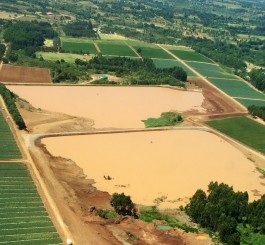
Recycling
Closed loop irrigation systems.
Storage
Largest water storage capacity in Kenya – fully utilises natural flood flow – sufficient water for 6 months.
Capture
Active rain water capture from building/structures/growing tunnels.
Cleaning
Water cleaning systems, including reverse osmosis and creation of natural riperian/wetland areas.
Overall water usage is reduced and the environmental impact of water use in our activities is kept to a minimum.
Maji Safi – Lungs of the Lake
Flamingo pioneered the use of wetland schemes to purify spent farm water.
A series of constructed pools utilise the Nile cabbage to suck out nutrients & impurities from grey water.
As water flows down through the pools the water becomes cleaner.
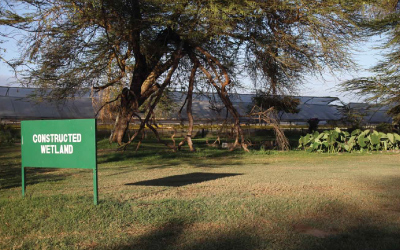
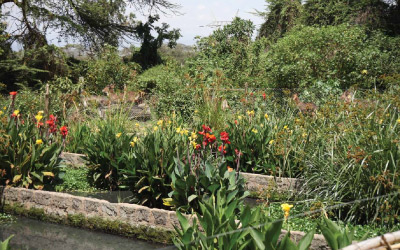
The environment surrounding the wetlands system supports a mosaic of habitats.
Birds, plants & invertebrates thrive in the wetland ecosystem.
Output water is clean enough to drink.
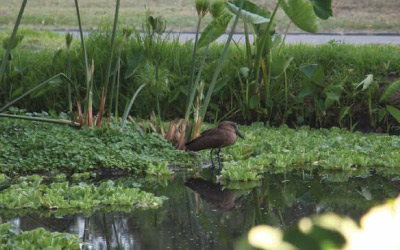
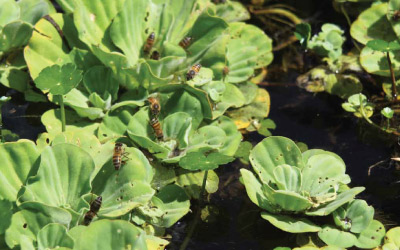
Papyrus plants filter excess nutrients & prevent erosion on the lake shore.
Papyrus plants are nurtured to help the wetlands system.
Papyrus plants are then transplanted around the lake.
Hydroponic water is recirculated and re-used.

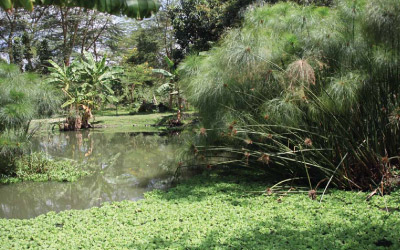
Clean Water
Intelligent Farming
Better Planet


Training sessions on the efficient use of electricity in Kenya.
Energy efficient fixtures e.g. Solar panel installations, energy efficient bulbs on sites etc.
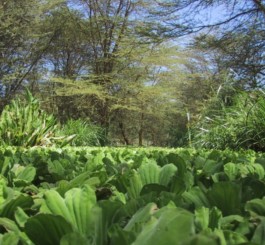
Wider projects to support the areas in which we operate:
Reforestation projects in Kenya.
Lake Naivasha Water Users Association – Building water levels and improving the aquatic environment of an essential lake.
Protecting wild Kenya – Flamingo Fence Post Project



Taka Taka
Responsible disposal of rose-greenhouse plastic.
Cleaning up communities proximate to our operations.
Using old plastic to make fence posts.
Kulinda Miti
Supplying fence posts free of charge to Rhino Ark.
Rhino Ark fences the Aberdare and Mount Kenya forest ecosystems.
Kulinda Wanyama Na Maji
Fenced forests protect the wildlife and perpetuate finite gene pools.
Forests protect Kenya’s climate and water stocks.
Ukuaji Wa Uchumi
A stable water table promotes agricultural development.
Forests full of wildlife attract Tourists.
Tourists create jobs.
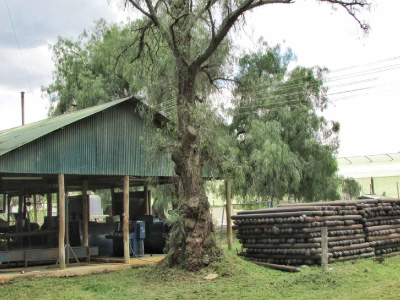

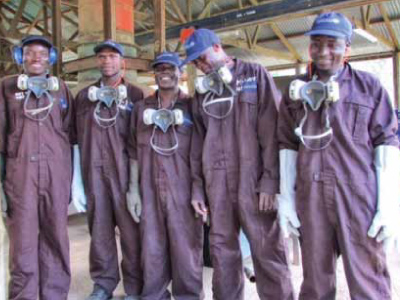
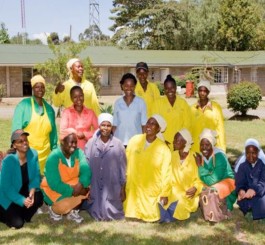
Ethical awareness on farms e.g. Partner Africa ETI training for supervisory roles, worker welfare committees.
Gender equality supported e.g. ’Women Fund’ and equality committees in place.
Training & development schemes for staff – ‘Leadership for Hope’
Subsidised food and canteen facilities for staff .
Health awareness training – HIV, malaria etc
Social / sport clubs

Fairtrade
We are involved in a growing number of Fairtrade projects.
Community clinics/hospitals
Only ultrasound scanner outside Nairobi is in Naivasha Clinic. Qualified doctors, full hospital facilities, ambulance service.
Schools
Building, development, funding and support in the communities in which we grow and pack.
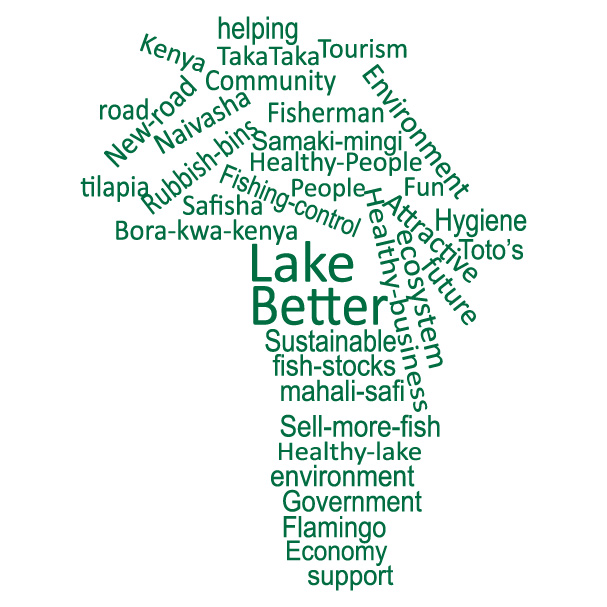
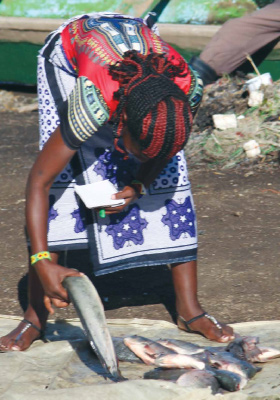
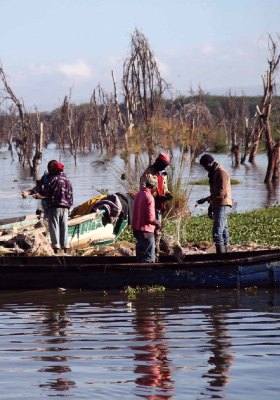
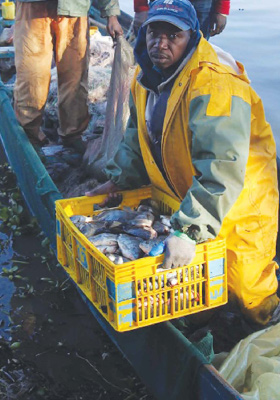
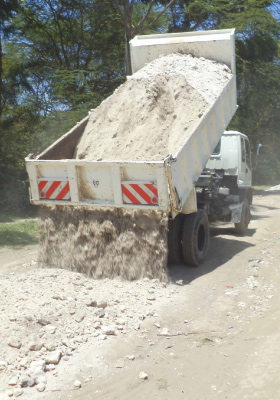


We take our responsibilities to our customers, staff, investors and environment very seriously. We realise we can only operate successfully when we fully engage and respect these various interests.
We are committed to delivering the following 6 values, which are embedded right in the heart of our business:
Freedom
Integrity
Responsibility
Mutuality
Innovation
Quality
Statement
Flamingo Horticulture Investments Ltd is headquartered in the UK and is a vertically integrated horticultural agribusiness that cultivates, processes, packages, markets, and distributes cut flowers and plants and premium freshly prepared vegetables. Over 9,000 people directly depend their livelihoods to Flamingo Horticulture Investments Ltd and it is the largest vertically integrated, value-added producer and exporter of fresh produce and flowers to the EU.
Farming sustainably and responsibly has been a core commitment throughout our operations and has been further developed as the business has expanded to work with other producers around the world. As an agricultural business we are intimately linked to the natural environment and we understand the volatility, uncertainty, complex and ambiguous factors affecting both our and our partners operations. We have pioneered the development of environmentally intelligent farming solutions and taken an active participation in leading the industry in Environmental and Social programs in the regions and countries in which we operate.
Flamingo Horticulture Investments Ltd recognises the challenges described in the Foresight report (2011) on the Future of Food and Farming and the drivers of change affecting farming, the Fifth Assessment Report of the Intergovernmental Panel on Climate Change (IPCC) as well as the UN Sustainable Development goals to promote sustainable agriculture. Flamingo Horticulture are active members of Friends of Champions 12.3 commitment to global food waste. All our global farming activity is externally audited to the highest industry standards such as Fairtrade, MPS-A, Global-GAP and we are active members of the Ethical Trade Initiative. Competition for key resources such as water, natural resource depletion, changes in the size and nature of per capita demand and climate change are other factors causing concern currently. Clearly, sustainable practices which safeguard our environment are essential to protect the future of generations to come. Flamingo Horticulture Investments Ltd has made sure that this responsibility to future generations is reflected and understood throughout the company, and covers all areas of the business, at all levels. This commitment to a sustainable future is has remained consistent throughout the businesses and develops and influences the decisions we take. We seek to develop our understanding of the political, social and environmental issues that affect us to better inform our decision making. Our sustainability strategy outlines our commitments and values for a sustainable future and the steps necessary to implement it. Our vision is one where our business and the communities where we operate both thrive in a future that is sustainable.

Code of Conduct
Flamingo Horticulture is committed to upholding high standards of responsibility and ethical behaviour in its own operations and from its business partners. The Flamingo Horticulture Code of Conduct is aimed at achieving the highest standards of behaviour across the organisation, and managing the impact of the Company’s operations on the environment and communities in which we operate. Flamingo seeks to ensure that all its operations are conducted with honesty, integrity and openness and with respect for the rights and interests of the Company’s employees as well as the legitimate interests of all those with whom it has relationships.
This Corporate Code of Conduct is the governing document which details Flamingo’s policies, standards, expectations and commitments which we deem key to our corporate responsibility and the standards are embodied in the values that we have in the business. It is designed to help drive the Company towards a sustainable future through responsible working practices which ultimately deliver a profitable and successful business for all of our key stakeholders.
Equal Opportunities
Flamingo Horticulture is an equal opportunities employer and undertakes to apply objective criteria to assess merit and ability. It aims to ensure that no applicant, contractor, employee or worker receives less favourable treatment on the grounds of race, colour, national or ethnic origins, sex, sexual orientation or perceived sexuality, marital status, disability, membership or non-membership of trade union, “spent convictions” of ex-offenders, class, age, politics, religion or belief. All employees will be given equal opportunity to progress within Flamingo we are committed to a programme of action to make this policy effective in order to minimise the possibility of discrimination and to stop it immediately, whenever it arises.
Gender Pay Gap Reporting
Flamingo Flowers Ltd has reported its gender pay gap in line with its obligations by law. The information is available publicly via the official government website: https://gender-pay-gap.service.gov.uk/
This statement is made in relation to Section 54, Part 6 of the Modern Slavery Act 2015 and sets out the Company’s approach and action taken to ensure that slavery and human trafficking does not exist in our supply chains or in any part of our business.
Flamingo Horticulture is a vertically integrated horticulture business active in the growing, processing, marketing and distribution of sustainably produced roses and other cut flowers and premium and prepared vegetables. The group is a core supplier to most of the leading UK multiple retailers, as well as internationally to customers in Europe, South Africa, the Middle East, Japan and Australia. The group has UK production sites in Stevenage, Sandy, Spalding and Weston, business units in Holland and Germany and large scale farming operations in Kenya and South Africa.
We carry out regular 3rd party audit checks on our labour providers, suppliers in line with UK retail and BRC standards, which include carrying out checks to detect, forced or bonded labour. We also have regular Ethical Trading Initiative (ETI) audits at our sites in the UK and Kenya throughout the year. All suppliers are contractually obliged to operate to our standards and are aware that we reserve the right to audit or check their working practices at any time.
There are a number of specific challenges in relation to managing sustainability issues over such a complex, global supply chain. We have had no reported cases during the year in 2015, but, are committed to remaining focused in this area and ensuring that our standards are maintained as we believe it to be a critical part of our reputation as a business.
As a business we will not tolerate forced labour (including human trafficking) and a number of the HR and Technical team have undertaken training in an initiative called Stronger Together, which helps to highlight the issues and outline company response to any suspicion of forced or bonded labour. Our Code of Conduct governs standards of behaviours within the business and all employees are aware of their obligations under this code. Subsequent training has been designed and will be rolled out across the business to reach a far greater number of employees.
As a highly ethical business with a proud track record of operating to the highest standards we remain committed to ensuring that there is no forced or bonded labour either directly within our business or within our supply chain. Should any such activity be discovered anywhere within the business or our supply chain we would inform the appropriate authority and immediately take the appropriate action.
2017
Martin Hudson
CEO, Flamingo Horticulture
Modern Slavery - Annual Statement
This statement applies to Flamingo Horticulture Investments and all its subsidiary businesses operating in the UK.

What is Modern Slavery? We have defined Modern Slavery using the Walk Free Foundation definitions to ensure clarity as:
Trafficking in Persons
- Recruitment, transportation, transfer, harbouring or receipt of persons
- By means of threat or use of force or other forms of coercion, of abduction, of fraud, of deception, of the abuse of power or of a position of vulnerability or the giving or receiving of payments or benefits to achieve the consent of a person having control over another person (these means are not required in the case of children)
- With the intent of exploiting that person through:
- Prostitution of others
- Sexual exploitation
- Forced labour
- Slavery (or similar practices)
- Servitude; and
- Removal of organs
[UN Trafficking Protocol, 2000]
Slavery and Slavery-Like practices
The status or condition of a person over whom any or all of the powers attaching to the right of ownership are exercised. This includes slavery-like practices: debt bondage, forced or servile marriage, sale or exploitation of children (including armed conflict) and descent-based slavery. [The Slavery Convention (1926) and Supplementary Slavery Convention (1956)].
Forced labour
All work or service which is exacted from any person under menace of penalty and for which the said person has not offered himself voluntarily. [ILO Forced labour Convention, 1930 (No. 29)]
Flamingo Horticulture is a vertically integrated horticulture business active in the growing, processing, marketing and distribution of sustainably produced roses and other cut flowers and premium and prepared vegetables and indoor and outdoor plants. The group is a core supplier to most of the leading UK multiple retailers, as well as internationally to customers in Europe. The group has UK production sites in Stevenage, Sandy, Spalding and Weston, business units in Holland, France and Germany and large-scale farming operations in Kenya.
Due diligence activities involve regular 3rd party audit checks on our UK labour providers twice a year with worker interviews using the Complyer audit tool in line with UK retail and BRC standards, which include carrying out checks to detect, forced or bonded labour. We also have regular SMETA Ethical Trading Initiative (ETI) audits with worker interviews at our own and our suppliers sites where we trade based upon risk assessments as well as wider self-assessments of all suppliers on the SEDEX platform [Supplier Ethical Data Exchange http://www.sedexglobal.com/ ].
All suppliers are contractually obliged to operate to our standards and are aware that we reserve the right to audit or check their working practices at any time. We use the Global Slavery Index as developed by the Walk Free Foundation as a primary resource but are mindful of specific challenges relating to industry issues, for example, agency labour in the United Kingdom. Our approach further utilises industry data from the US Government of Labour Affairs (ILAB), which lists known risks of Modern Slavery by product and country to further mitigate these issues. http://www.dol.gov/ilab/reports/child-labor/list-of-goods/
Flamingo is developing its scrutiny of all 3rd party supply chain providers, including 3rd party providers who supply goods not for re-sale by Flamingo within our indirect supply chain. Flamingo is committed to review all areas of its supply chain to ensure that we minimise any risk in both our direct and indirect supply chain. To this end Flamingo Horticulture has developed a Responsible Sourcing policy which was introduced to the business in 2018, and which ensures that all the group’s own operations and 3rd party suppliers are aware of the requirements expected of them as part of our supply chain. The policy covers all 3rd party suppliers, ensuring they take responsibility for employees, contractors, sub-contractors, suppliers and agency workers are treated fairly in line with both Flamingo Horticulture’s Code of Conduct and the Responsible Sourcing policy.
There are several specific challenges in relation to managing broader sustainability issues over such a complex, global supply chain of which Modern slavery is a component. Our due diligence activities have shown no reported cases in our supply chain during the year in 2023 but are committed to remaining focused in this area and ensuring that our standards are maintained as we believe it to be a critical part of our reputation as a business.
As a business, we will not tolerate any forms of Modern Slavery as defined above, and a number of the HR and Technical team have undertaken training in an initiative called Stronger Together, helps to highlight the issues and outline company response to any suspicion of forced or bonded labour. Further training in this area will be rolled out across our HR and Technical teams with particular focus on our global supply chain.
We expect all of our employees to be aware of the risks of Modern Slavery and they play a key role in helping to identify any practices within the business, which would cause concern. The business has a whistleblowing policy (see Flamingo Horticulture Whistle Blowing policy) to enable all employees to report and identify and areas where they believe to be concern. Employees are also made aware through posters and other communications of the process for reporting any concerns, which are used as part of a general campaign to raise awareness on the sites that we operate.
Our Flamingo Horticulture Code of Conduct governs standards of behaviours within the business and all employees are aware of their obligations under this code. Should there be any concerns regarding any activity in the business which runs contrary to this policy then all employees should report any suspicions immediately to their line manager or local HR department. If employees prefer, then they can make use of the company’s whistleblowing policy to report any such concerns.
Should there be any identified activity which the company believes would be covered under the Modern Slavery Act 2015 then the company is committed to reporting this activity to the relevant authorities i.e. police and 3rd party organisations i.e. NGOs, relevant charities. The company is committed to investigating all matters thoroughly and any misconduct involving Flamingo will be dealt with through the appropriate internal process.
We have a proud track record of operating to the highest standards, we remain committed to ensuring that there is no forced or bonded labour either directly within our business or within our supply chain. Should any such activity be discovered anywhere within the business or our supply chain we would inform the appropriate authority and immediately take the appropriate action.

Olivia Streatfeild
Chief Executive Officer
Flamingo Group International
December 2025

Tax Disclosure - Statement

Tax Strategy
This UK Tax Strategy has been approved by the Flamingo Group International Ltd Board of Directors and is published on behalf of all UK companies within the Flamingo Group International Ltd (“the Group”).
It applies from the date of publication online and is published in accordance with Part 2, Schedule 19 of the Finance Act 2016 for the financial year ended 28th December 2024. This statement will be reviewed and updated annually.
This UK Tax Strategy applies to all direct and indirect taxes listed in paragraph 15(1) of Schedule 19 of the Finance Act 2016, including Income Tax, Corporation Tax, National Insurance Contributions (NIC), Value Added Tax (VAT) and amounts for which the company is accountable under PAYE regulations.
Risk Management
The Group believes that a responsible tax approach is an integral aspect of sustainable business. The Chief Executive Officer (“CEO”) and their team are tasked with managing and controlling the tax function and related risks. The team possesses sufficient insights into the business and tax rules. It also has systems and controls in place to adequately assess and manage any such risks, and employs outside specialists to supplement its own personnel, as needed.
The Group is committed to acting in accordance with applicable tax laws and regulations, and to comply, filing tax returns and any necessary tax disclosures in accordance with applicable laws, regulations, and other authoritative guidance.
Attitude towards tax planning and level of risk
The Group’s approach is to undertake tax planning supported by applicable law, rules and regulations, guidance from the government tax authorities, and/or judicial or other governmental decisions. The Group may claim properly available incentives, allowances, credits, exemptions, or other reliefs granted by governments, where it is beneficial to do so.
The Group attempts to manage its total tax liability within the framework of any legislative relief and refrains from taking aggressive stances in its interpretation of the applicable relief. The Group does not tolerate tax evasion, nor does the Group tolerate the facilitation of tax evasion by any associated person acting on its behalf.
To the extent Group subsidiaries transact with each other, such transactions are undertaken on an arm’s length basis in compliance with relevant UK legislation as well as international laws and guidance such as the Organization for Economic Co-operation and Development (OECD) guidelines.
Relationship with tax authorities
The Group seeks an open and constructive dialogue with the tax authorities in the jurisdictions in which it operates. For example, the Group’s UK companies’ approach to its dealings with HM Revenue and Customs (“HMRC”) is to have an honest and transparent relationship, managed through regular communications and meetings with the HMRC Customer Compliance Manager and their wider team.
27th August 2025







